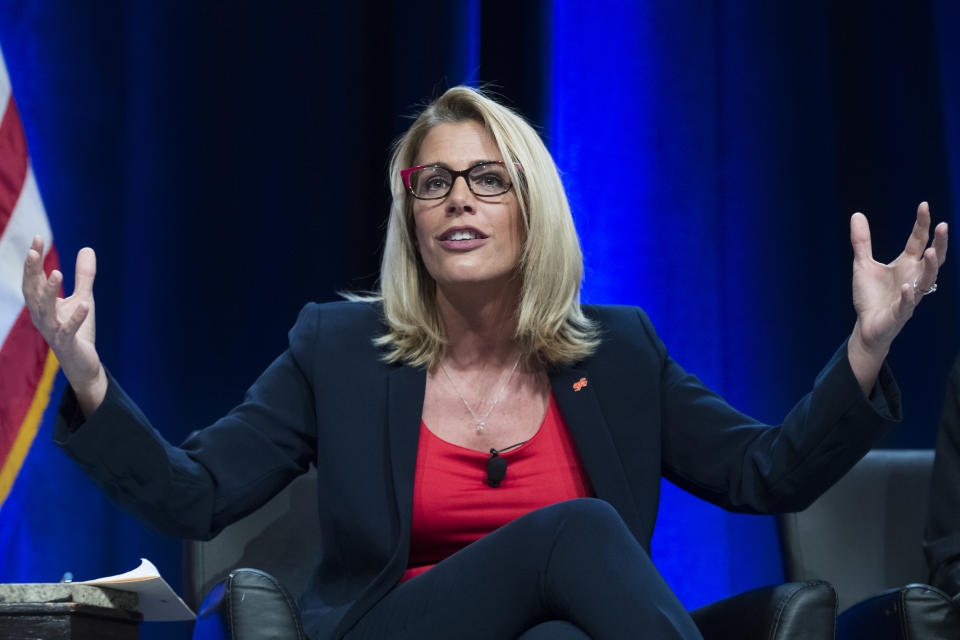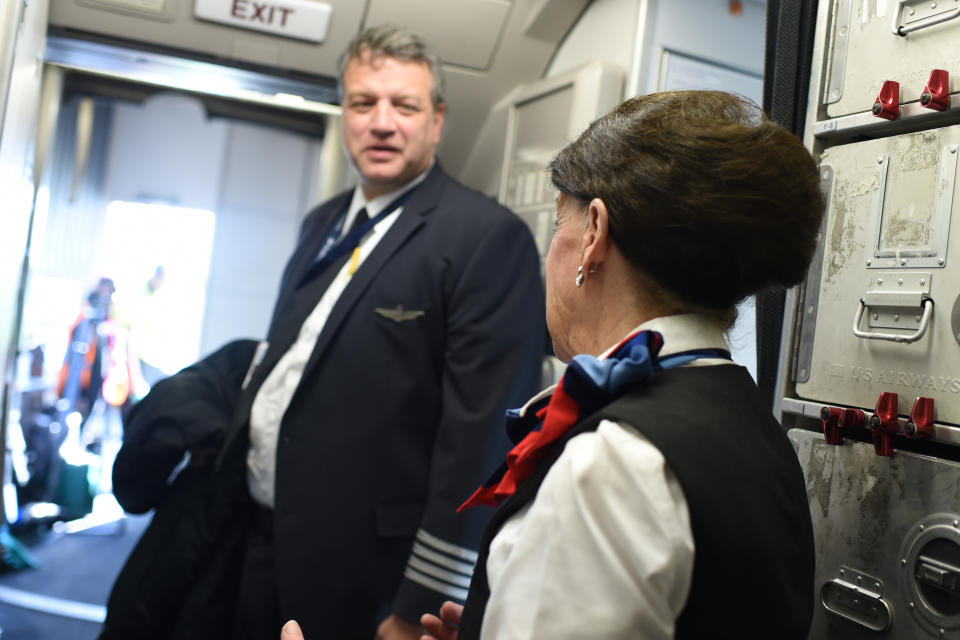Coronavirus stimulus bill: Flight attendant union 'achieved something unheard of in American history'
Flight attendants were among those rejoicing at the passage of the $2 trillion government stimulus bill in response to the coronavirus, which has had a major impact on the U.S. economy and businesses across the country.
The bill — titled the Coronavirus Aid, Relief, and Economic Security Act (CARES Act) — ensures that even with drastically decreased air traffic amid the pandemic, aviation workers will still get paid. It passed both chambers of Congress and awaits President Trump’s signature.
“Our union put forward this plan, and we worked with unions representing workers across aviation and transportation to make our case to Congress,” Sara Nelson, the president of the Association of Flight Attendants union, told Yahoo Finance. “Hundreds of thousands of people sent letters and made calls. Together, we achieved something unheard of in American history: relief crafted for workers, by workers.”

‘An unprecedented win for frontline aviation workers’
The bill allocates $25 billion for passenger air carriers, $4 billion for cargo air carriers, and $3 billion for contractors. Those funds must be used to pay employee wages, salaries, and benefits. The amount that each carrier receives specifically is based on the amount they paid employees from April 1 to September 30, 2019, that was reported to the Department of Transportation.
“This is an unprecedented win for frontline aviation workers and a template all workers can build from,” Nelson said. “The payroll grants we won in this bill will save hundreds of thousands of jobs and will keep working people connected to health care many will need during this pandemic.”
Not everyone was happy with the outcome of the bill — Rep. Alexandria Ocasio-Cortez (D-NY) blasted the Senate for the lack of protections for American families, calling it “one of the largest corporate bailouts with as few strings as possible in American history. Shameful!”
.@RepAOC @AOC: "Our community's reality is this country's future if we don't do anything. Hospital workers do not have protective equipment. We don't have the necessary ventilators. We have to go into this vote eyes wide open..." pic.twitter.com/PaFGc9ncKM
— CSPAN (@cspan) March 27, 2020
But Nelson did not see the bill as a corporate bailout.
“It’s a rescue package for workers,” she said, “for flight attendants, gate agents, pilots, mechanics, caterers, airport maintenance and janitorial staff, and everyone who keeps our aviation system moving. It ensures our aviation system can operate as needed during the crisis, especially to continue moving critical personnel, aid workers, supplies, and other essential business.”
‘The bill mandates strict rules on the aviation industry’
In order to qualify for this financial assistance, there are several stipulations. The air carrier or contractor must not conduct involuntary furloughs or reduce pay rates and benefits until September 30, 2020. They also cannot purchase an equity security of the air carrier or contractor, or the parent company, if it’s listed on a national securities exchange, through September 30, 2021.
The bill also ensures that the air carrier or contractor won’t pay dividends or make other capital distributions through September 30, 2021. Like all of the businesses receiving aid in the bill, the airlines cannot make stock buybacks for at least a year, which was a major priority for Democrats involved.
“It means every worker in aviation has what they need to stay strong through this crisis and continue working to support our communities,” Nelson said. “It keeps workers on the job so our industry can ramp back up as soon as it’s safe, which is critical to our economic recovery. And at the same time, the bill mandates strict rules on the aviation industry to rein in corporate practices like buybacks, executive bonuses, and stock dividends.”

To ensure that the financial assistance will be used properly, the bill stipulates that until March 2022, any employee or contractors who makes more than $425,000 a year will not make more than they did in 2019. They also cannot receive severance pay or benefits “which exceeds twice the maximum total compensation” made in 2019. These include through salary, bonuses, stock, and other financial benefits.
“This is only the start,” Nelson said. “We hope to build from this template to include workers across industries — to keep people connected to their paychecks and benefits and ensure our economy is ready to restart quickly and safely as soon as we have the virus under control.”
Aarthi Swaminathan contributed to this post.
Adriana is a reporter and editor for Yahoo Finance. She can be reached at [email protected]. Follow her on Twitter @adrianambells.
READ MORE:
Coronavirus hospital bills: A look at the costs for Americans
Democrats and Republicans are divided on coronavirus, polls say
Coronavirus: U.S. health care workers 'taking it one minute at a time' as deaths rise
Read the latest financial and business news from Yahoo Finance
Follow Yahoo Finance on Twitter, Facebook, Instagram, Flipboard, SmartNews, LinkedIn, YouTube, and reddit.
